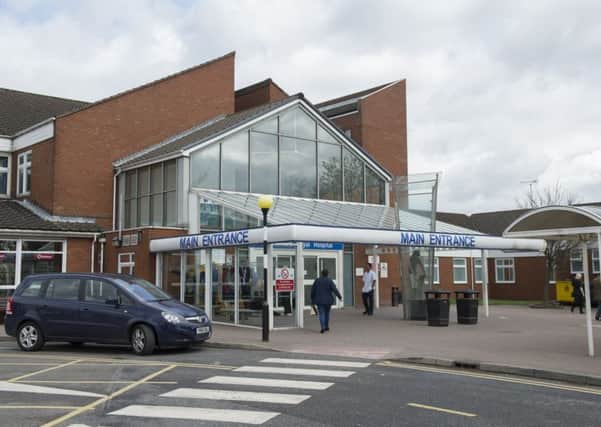'˜Last minute' operation cancellations at Chesterfield Royal Hospital on the rise, figures show


Figures from NHS England show that 85 non-urgent operations, such as hip or knee procedures, were cancelled by the hospital’s trust at the last minute in the three months to September.
This was an increase of 70 per cent from the same period in 2017, when there were 50.
Advertisement
Hide AdAdvertisement
Hide AdThe data covers cancellations for non-clinical reasons, such as bed or staff shortages.
The Royal College of Surgeons (RCS) has blamed pressure on the over-stretched NHS for the increasing number of cancellations in England. It also warned the figures could be masking the true scale of the problem, as they do not include operations cancelled at more than 24 hours’ notice.
A last-minute cancellation is defined as being either on the day that a patient was due to arrive, after the patient has arrived, or on the day of the operation itself.
Professor Cliff Shearman, vice president of the RCS, said: “Having an operation that has been planned for months cancelled at short notice can be very stressful for patients and their families.”
Advertisement
Hide AdAdvertisement
Hide AdIf a trust is unable to reschedule the operation within 28 days, it must instead fund the treatment in another hospital.
It also forfeits its payment from the NHS Clinical Commissioning Group, which funds healthcare in the area.
The statistics show that five per cent of patients at the Royal hospital were not treated within this 28-day timeframe between July and September.
A Chesterfield Royal Hospital spokesperson said: “We carry out around 30,000 planned procedures every year with one per cent of non-urgent operations accounting for last minute cancellations, less than one per day, and it is never a decision that is taken lightly.
Advertisement
Hide AdAdvertisement
Hide Ad“However, circumstances on the day, such as a high number of critically ill and emergency patients, can create a situation where those patients with the greatest need take priority over a non-urgent procedure, or there is nowhere clinically suitable for a patient to be cared for safely following surgery. We understand that this is an anxious time for patients and can be inconvenient when families have made arrangements to support loved ones. We will always do everything possible to ensure the procedure is rebooked within 28 days.”